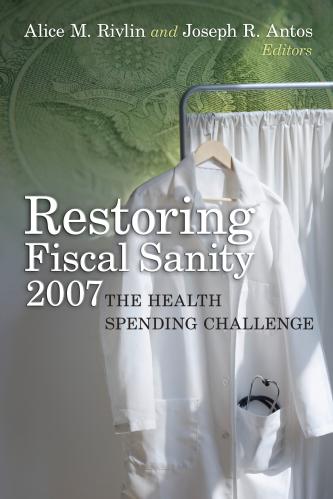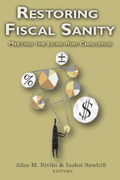Tell us about your book.
The title of the book is Restoring Fiscal Sanity, The Health Spending Challenge. We wrote it because we’re really worried about the economic future — about the budgetary future — of the United States and about how we’re going to pay for health care.
What is the theme of the book?
The major theme of the book is, how can federal programs be reformed so that the whole system of health care spending becomes more efficient? So we look at the different programs. The big one is Medicare. And the next biggest is Medicaid, a program for low-income people and for many, many seniors.
What’s happening to these programs?
Everybody’s using more health care. It’s getting more and more expensive. That shows up in the federal budget in Medicare and Medicaid. Those spending programs are rising very rapidly. They’re rising partly because there are more older people, and there are going to be more and more older people and we’re all going to live longer. And more importantly, because we’re all using more medical care. Not just older people but everybody. So the cost of providing the same benefits under Medicare and Medicaid is rising dramatically. If we go on doing what we’re doing, we will be using about 18 percent of everything we produce just to pay for those programs in about thirty-five years.
What can be done?
We have to slow the rate of growth of spending generally on health care, and the rate of growth of spending on Medicare and Medicaid particularly. But it’s not a solution just to cut Medicare and Medicaid and say everybody else has got to pay for it. The states and the private sector are just going to pick up the bill. We’ve got to make medical care more efficient and more effective. And we think that the federal programs can lead in that direction.
The Brookings Institution is committed to quality, independence, and impact.
We are supported by a diverse array of funders. In line with our values and policies, each Brookings publication represents the sole views of its author(s).









Commentary
Q&A on Restoring Fiscal Sanity 2007
March 12, 2007